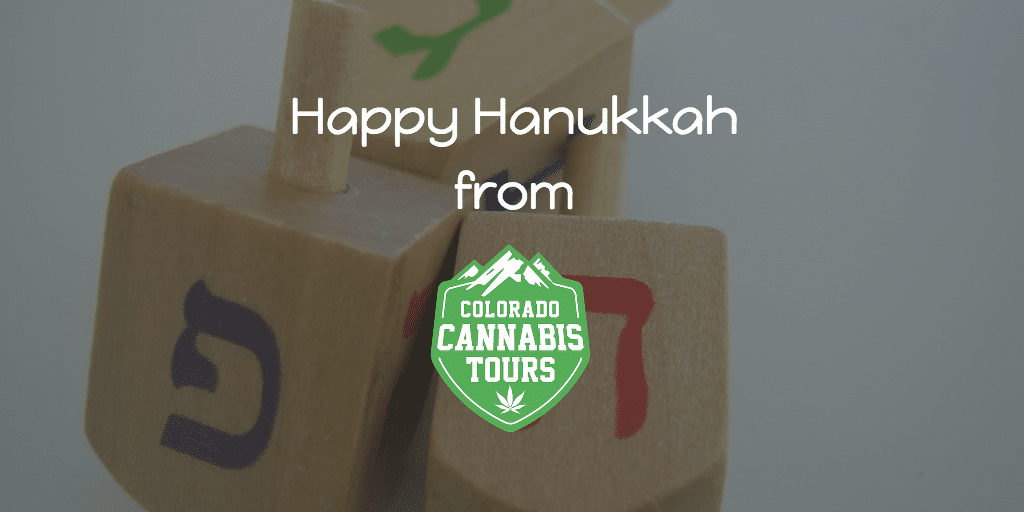
“Hanukkah” is derived from the Hebrew verb “חנך”, meaning “to dedicate,” and celebrates the Maccabean Jews regaining control of Jerusalem and rededication of their Holy Temple in Jerusalem in 165 BCE. As the Jews went to light the temple’s menorah, a form of candleabra, to commemorate this occurrence, they found only a single flask of olive oil still sealed by the High Priest with only enough oil to keep the menorah for one day. They used the small amount, yet the oil burned for seven extra days, the time it took to have new oil pressed and made ready for new light. Although rooted in “dedication,” the word Hanukkah most figuratively relates to “a new beginning.” While the precise origins of the resulting candle lighting holiday lasting eight days and nights, starting on the 25th day of Kislev according to the Hebrew calendar (usually around December on the Gregorian), is debated by scholars, people of the Jewish faith have been celebrating this miracle for thousands of years.
The holy holiday is also known as the Festival of Lights. In the United States, Israeli Prime Minister David Ben-Gurion presented the first official White House representation of the holiday in 1951, by gifting President Harry Truman with a menorah. Since this event, the holiday has become a U.S. tradition and was made an annual observance in 2001, when President George W. Bush held an official Hanukkah reception in the White House in conjunction with a full candle-lighting ceremony.
People choose to celebrate Hanukkah in varied ways. Yet, overall, the holiday is a dedication to some pretty kick-ass spiritual phenomena.
Energy
The celebration of one day’s worth of oil and light lasting eight days is not simply a miracle but a celebration of energy efficiency, energy conservation and energy independence. Not to mention, it’s a celebration of light derived from a renewable energy source, in this instance olive oil. Examples of this now manifest in the Coalition on the Environment and in Jewish Life (COEJL) renewable energy campaign.
Light
The reclamation of the Jews Holy Temple restored the ability of Jews to practice their faith in their temple in Jerusalem. The celebration of Hanukkah, The Festival of Lights is a celebration of light overcoming darkness.
Plant Based Oils
Hanukkah tradition around the world incorporates the frying of traditional foods in olive oil. Delicacies such as iconic latkes or potato pancakes, cheese latkes, jelly doughnuts and fried fritters are eaten to commemorate the importance of this type of oil.
Meditation & Ritual
Hanukkah is celebrated for eight days and nights with a daily candle lighting ceremony, typically around sundown. Each day, a new candle is lit to commemorate the holiday. Generally, the first candle is lit on the first day, two candles are lit on the second day, and this continues until all candles are lit on the final day. This ritual translates to more than a week of scheduled prayer, rejoice, and gifting children, family and friends with presents. While the holiday is important religiously, it’s light-hearted; it is forbidden to eulogize during Hanukkah, and most Jews continue to work. Yet, during each day’s candle lighting ceremony, it’s tradition to pause and focus on family and friends only.
Abundance
One of the most traditional Hanukkah gifts is gelt, which is money. Oftentimes, this is actual cash. Other times, gelt is expressed as chocolate coins wrapped in gold or silver foil. In both instances, children are taught to appreciate either. It’s customary to use the gifted gelt in a game involving a dreidel, which is a four-sided spinning top with Hebrew letters representing “nothing,” “all,” “half,” and “put in” etched or painted on the sides. Once players ante-in, the dreidel is spun over the pot of money. Depending on where the dreidel lands, players either take no money, all the money, half the money, or they have to place money back into the pot. While a few easy duckets can be made this way, this children’s game is also played with marbles, beans, candy and any number of desirable goods.
Family
The eight days of Hanukkah aren’t generally observed by visiting a temple or among very large groups of people. Generally, this is a great time for families to give their children several modest gifts and appreciate their togetherness.
Charity
In both North America and Israel, it is common to encourage children to give to charity or “tzedakah” in lieu of accepting presents for themselves. In some regions around the world it’s customary for children to gift their teachers with small amounts of money as a token of their appreciation.
Chutzpah
Chutzpah, once a derogatory Hebrew word to describe unmitigated gall, has become a modern Yiddish equivalent for tenacity, perseverance, guts. The Hanukkah menorah itself, with its candles burning bright, is meant not only to be celebrated by the household inward, but outward as well, so that passersby can see it and be illuminated by the holiday’s occurrence. Meanwhile, the dreidel has further significance in the Seleucid prohibition of Jews from studying their religion. When soldiers were spotted, the Jewish would hide their scrolls and spin dreidels instead, so the Seleucids assumed they were gambling and not studying. Hanukkah was born out of a struggle and war fought, out of contrarian phenomena, and these items represent how we can be too immersed, too judging, in the grind of life to notice the miracles regularly happening all around. The dreidel spinning, the candles flickering; only when we pause, and take the time to truly see, are our senses open to the many miracles present among us all the time.
- Blunted Objects Creates Bling for the High Minded and Stylish - September 3, 2017
- Valentine’s Day Gift Guide for the Cannabis Enthusiast - February 9, 2017
- How to Get a Cannabis Job in Oregon - January 19, 2017
